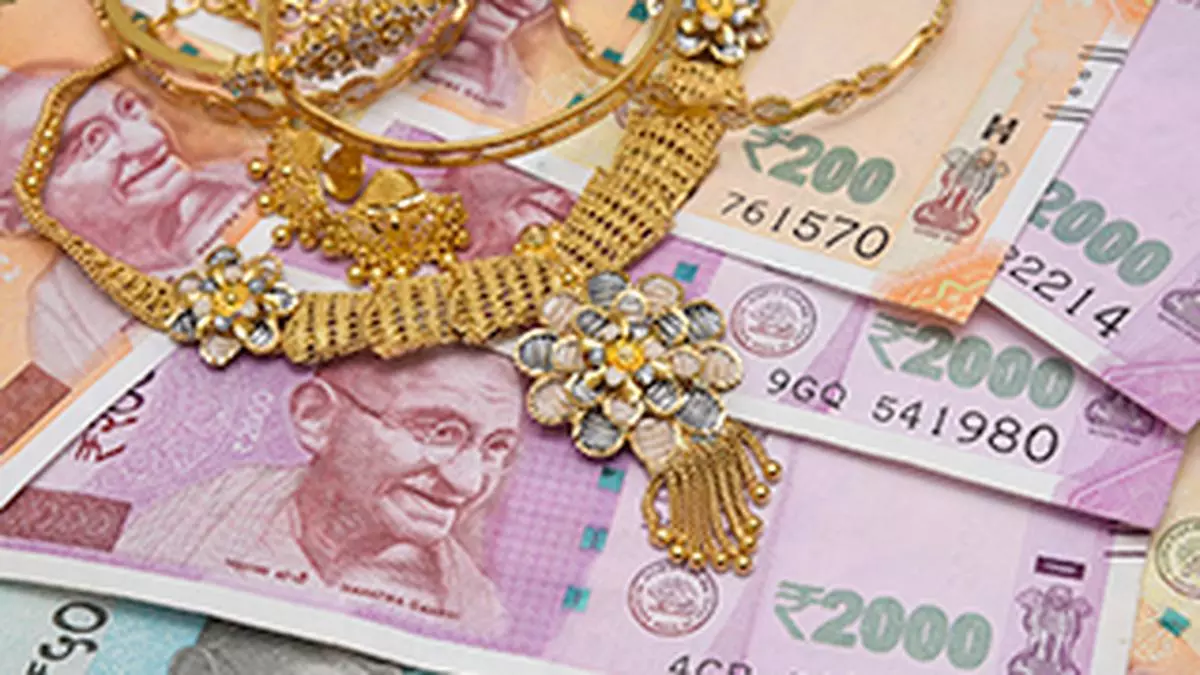Per capita women deposits in India increased by ₹4,618 in last 5 years to ₹42,503
Per capita women deposits increased by ₹4,618 in the last five years from ₹37,885 in FY19 to ₹42,503 in FY23, according to SBI’s Economic Research Department (ERD).
The maximum increase of ₹9,758 has been registered in the urban areas, where per capita woman deposits moved up from ₹51,980 to ₹61,738, per ERD’s “Ecowrap” report,which is based on RBI data.
Per capita women deposits continues to be highest in metropolitan areas at ₹83,434 in FY23, up ₹886 vis-a-vis ₹84,320 in FY19.
ALSO READ | Five tips for developing and managing your budget — even in tough economic times
Per capita women deposits in semi-urban and rural areas stood at ₹29,563 (₹25,942 in FY19) and ₹18,563 (₹15,976), respectively.
According to RBI’s latest report ‘Deposits with Scheduled Commercial Banks – March 2023 (BSR 2)’ the overall deposits of Scheduled Commercial Banks (SCBs) increased by 10.2 per cent, incremental deposits of ₹17.6 lakh crore.
“Interestingly, though the share of individuals in total deposits declined during the year, the share of women customers in total deposits continued to increase to 20.5 per cent in the year ending March 2023 (from 18 per cent in the year ending March 2019),” Soumya Kanti Ghosh, Group Chief Economic Adviser, SBI.
Credit goes up
Share of women borrowers in household credit to individuals rose further to 22.9 per cent of outstanding credit in FY23 from 18.3 per cent in FY15.
Further, the share of women borrowers in household credit to individuals increased to 24.9 per cent of incremental credit in FY23 from 8.9 per cent in FY15.
ALSO READ | ITR refund status: Know how to check your income tax refund status
“Sector-wise credit to women customers indicates that credit has increased in almost all major heads like Agri, Industry (manufacturing) and Trade during FY19-FY23,” Ghosh said.
However, share of women in personal loans segment has remained the same (20.5 per cent in FY23 vs 20.6 per cent in FY19). Incrementally, share of credit to women in total credit has increased to 25.4 per cent during FY19-23, with Agriculture, Education and Trade contributing the most.
Bank group-wise distribution
The ERD assessed that Regional Rural Banks (RRBs) continue to be the major contributors in increased women deposits share. Women deposits account for 50 per cent share in incremental deposits in RRBs during FY19 and FY23.
Among all bank groups, the share of Women Deposits to total Deposits was the highest in the case RRBs at 34 per cent (up from 27 per cent in FY19).
The per capita increase in women deposits in the last five years has been driven by private sector banks, the report said.
The share of Women deposits to total deposits in the case of private sector banks and small finance banks rose to 18 per cent (from 13 per cent in FY19) and 27 per cent (20 per cent), respectively. The share of Women deposits to total deposits in the case of public sector banks was at 23 per cent (21 per cent).
Age-wise distribution
Age-wise distribution of total deposits given by RBI shows that customers in the age-group of 40-60 years account for 37 per cent (or ₹34.7 lakh crore) of the deposits by individuals (excluding Hindu Undivided Family/HUF) of ₹94.7 lakh crore.
Meanwhile, total deposits by senior citizens (age 60 and above) amounted to ₹36.2 lakh crore which represents 38 per cent of the individuals’ deposits and 19.6 per cent of the overall deposits during the year.
Within this, women account for 39 per cent (or ₹37 lakh crore) of the individual deposits.
Total deposits by senior women citizens (age 60 and above) amounted to ₹13.2 lakh crore which represents 36 per cent of the individual women deposits and 7.2 per cent of the overall deposits during the year.
State-wise distribution
Nine states — Goa, Karnataka, Haryana, Kerala, Uttarakhand, Gujarat, Himachal Pradesh, Punjab, and Maharashtra — saw more than ₹10,000 increase in per capita women deposits in the five year period.
Per capita women deposits in the case of Goa was up by ₹26,229 to ₹1,05,191; followed by Karnataka (up ₹14,849 to ₹55,537); Haryana (up ₹14,542 to ₹72,649); Kerala (up ₹11,945 to ₹43,543); Uttarakhand (up ₹11,492 to ₹57,027); Gujarat (up ₹11,409 to ₹59,751); Himachal Pradesh (up ₹11,274 to ₹66,123); Punjab (up ₹11,252 to ₹62,099), and Maharashtra (up ₹10,205 to ₹61,404).
